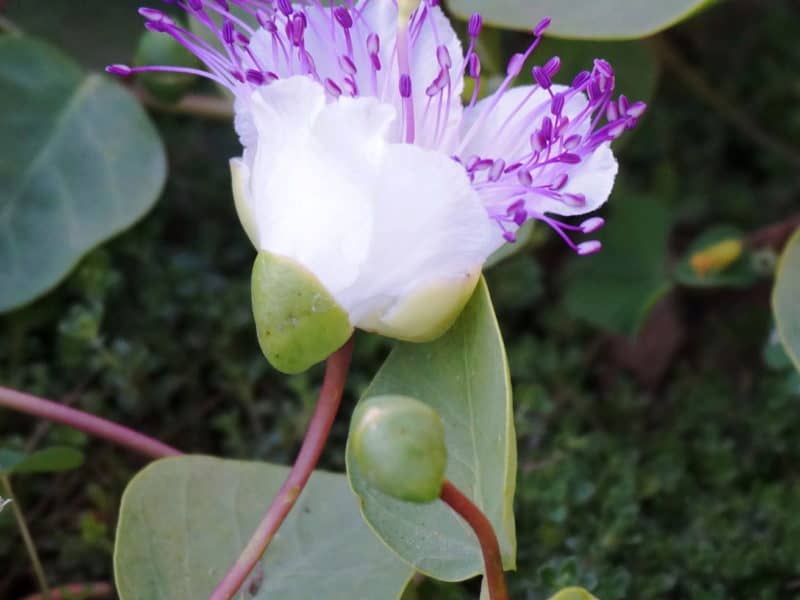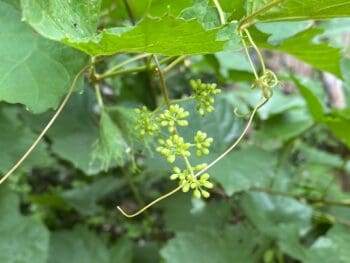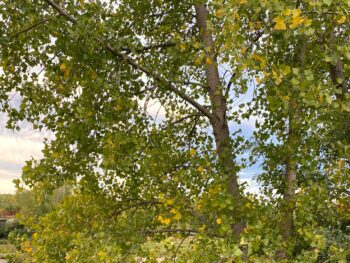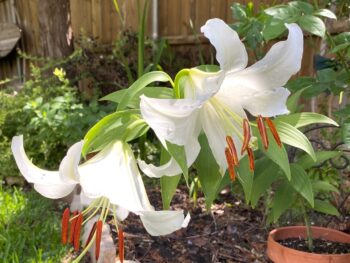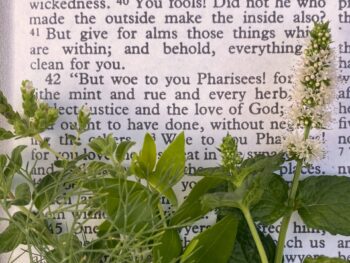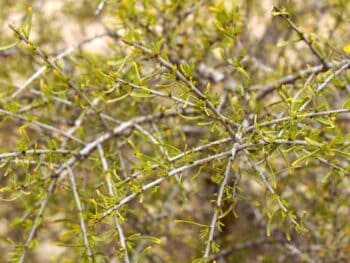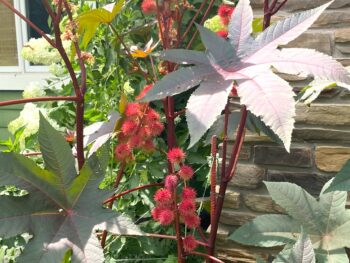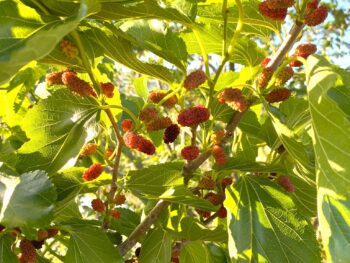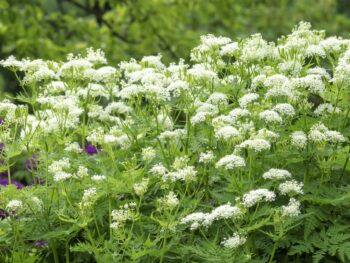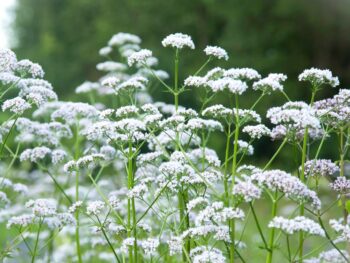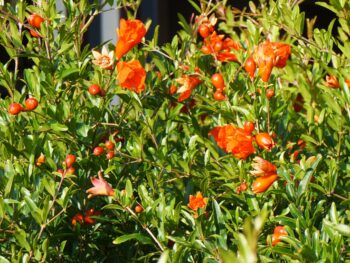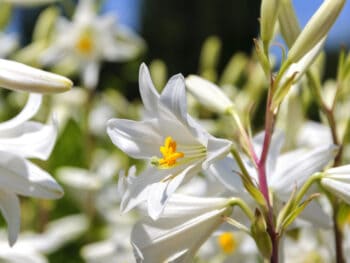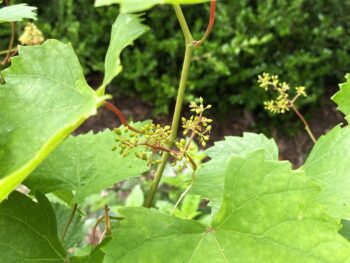This Valentines week, let your desire be your guide in dreaming of plants for your garden. In fact, in the Bible, desire IS a plant, a horticultural allusion that rewards those who dig into God’s Word from a gardener’s point of view. Meanings not apparent to the regular reader reveal surprisingly flirtatious insight to the gardener.
‘Abiyownah, the Hebrew word written as “desire” in most Bible translations, refers to caperberry, the petite fruit of Capparis spinosa. Fruits form once the lovely white, magenta-stamened flowers of the caper bush are pollenated. Also, the flowers themselves begin as berry-like buds which are harvested, and brined or pickled to create what we know as capers, the salted, savory-spiced morsels flavoring piccatas, sauces, and tapenades.
The succulent tidbits were attributed to an apparently arousing physical reaction, and wouldn’t King Solomon, author of Ecclesiastes and Song of Songs, rumored to have 1,000 wives and girlfriends, be the one to know?!
…when the locust can only drag itself along, and the caper berry has no [aphrodisiac] effect…
Ecclesiastes 12:5 CJB
Ironically, caper is mentioned among the depressing realities of old-age when our bodies (inevitably, the King emphasizes) waste away; when it is no longer enjoyable to go out, and even a luscious , caper-laced meal no longer sounds appealing. However, caper bushes make attractive, enchanting additions to the garden, their vivid growth a bold statement of vitality.
Listen, listen to me, and eat what is good, and you will delight in the richest of fare.
Isaiah 55:2 NIV
Those of us in regions cooler than zone 9 should grow the plants in pots and prepare to shelter them in winter months, a move perfectly matched to their mounding, overflowing habit. Familiar with the “Thriller, Filler, Spiller” formula for container growing? Caper bush combines all three delights, with show-stopping, daily-fresh, blooming flowers; full, arching branches filled with bright green leaves, which will spill over container edge or border. Enjoy all of this life and beauty in a water-savvy species that tolerates sunny exposures without heavy watering.
[By contrast], capers remind us to grow our desire for God’s righteousness, for his goodness to flourish and spill out of our lives, leaving a trail to the Lord and his faithful love. In the days when we are stooped over, may we still cry, “The Lord is upright!” (Psalm 92:15). —from “Growing Desire,” God’s Word for Gardeners Bible, 2014
Planted in the house of the Lord, {the righteous} will flourish in the courts of our God. [Growing in grace] they will still thrive and bear fruit and prosper in old age; They will flourish and be vital and fresh [rich in trust and love and contentment];
Psalm 92:13-14 AMP
Find links to growing and preparing capers on our Resources page.
Read more about caper bush in God’s Word for Gardeners near the end of Ecclesiastes, part of the Growing series of devotions found in the Garden Work section, page 755.
For more information on growing caper, see our Plant Guide:
gardenndelight.wpengine.com/plant-guide/caper/
Photo Credits: ©2015 Shelley S. Cramm Caper bush photographed at Huntington Library and Botanical Gardens, San Marino, CA link to more plants from this garden: gardenndelight.wpengine.com/bible-plants-pasadena/

